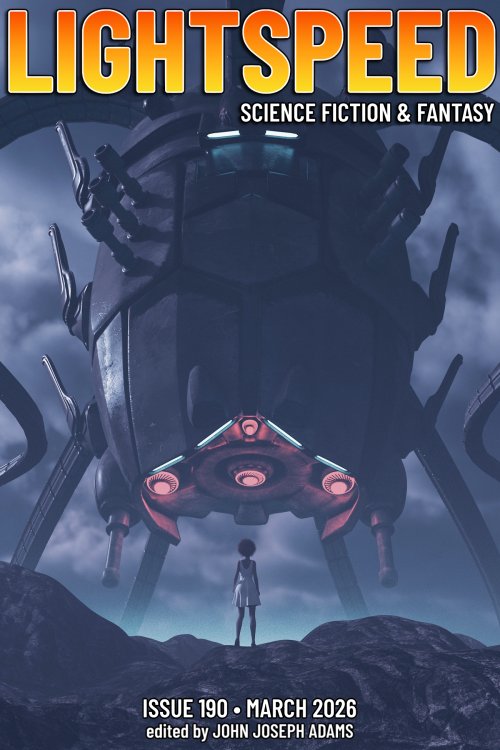Can you talk a bit about how “O Mechfighter, O Starsinger” took shape and what inspirations fed into it?
I’ve always wanted to write a space opera and a dual POV story, and this to me, felt like a culmination of all the ideas—colonization, memory, ancestral ties—I think about whenever I consider space. It seemed like the perfect fit.
I was struck by how the narrative withholds both characters’ names until the end, instead calling them mostly by their titles. What were you aiming for with this choice, and what ideas fed into it?
It’s interesting! I generally don’t name characters in my work or think much about it, because it’s something that always skips my mind. In this case, I think I realized about halfway through the first draft that names and the positions or titles each character identifies with in the story is a core part of their journey. There’s also a very powerful idea, I think, behind withholding a name. It’s the first thing we are taught to know or address someone by, so how do you act when you’re in an environment where you’ve lost touch with the reasons behind your name, or your name is disregarded in comparison to your role to the State.
The stylistic differences between the Starsinger’s and Mechfighter’s sections strongly characterized them from the beginning. To me the Mechfighter feels grounded compared to the Starsinger’s more poetic scenes, and as they meet the narrative shifts to the Starsinger’s mode and reinforces his triumph. Was that a reading you were hoping to elicit, and how consciously do you approach structural decisions like these when crafting a story?
I very much believe that the most effective multi-POV narratives are those when you know intrinsically who is speaking in the narrative, and for this reason, I did make sure I wrote both characters in different voices and tones, to contrast how they viewed the world. I was definitely hoping to elicit the dreams of the Starsinger, and I really wanted to show how that force of poetry impacted the world of someone who wanted to realize their dreams, but was also torn between a life that was grounded in strict reality.
For a story that has so much to do with losing hope and trying desperately to cling to shelter, I found it resonant that it was a story of broken people living on broken worlds. How did you approach the question of where to place the story, and was the idea of the asteroid cities there from the beginning?
Space is such a fertile ground for interesting world-building, and I thought this idea of characters living in asteroids to be a fascinating and also somewhat plausible world-building tool. I didn’t think so much of where to place them, so much as I knew where they would be based on the kind of people they are. I always think character first, and everything is in service to that.
Is there anything you’re working on that you’d like to talk about? What can our readers look forward to seeing from you in the future?
More stuff, hopefully! But nothing I want to talk about for now.
Enjoyed this article? Consider supporting us via one of the following methods:










